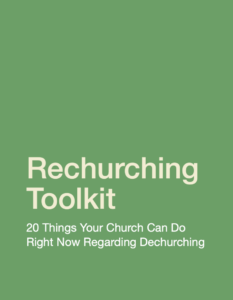“For I know the plans I have for you,” declares the LORD, “plans to prosper you and not to harm you, plans to give you hope and a future.”
These words are the John 3:16 of American cultural Christianity. Watch how often they show up on the Bible verse plaques sold in Bible Belt mall kiosks or posted on Facebook walls, even on tattoos. Whether as home decor or on social media posts, I see this passage claimed fervently by people I know haven’t been in a church service since the first Bush administration.
Naturally, this love for Jeremiah 29:11 has often led more theologically oriented Christians to lament its out-of-context use. So much so that a young Christian recently asked me, “Does Jeremiah 29:11 apply to me, or not?”
My answer: Kind of.
Let me take that back. Yes, it does apply to you, but not in the way many “claim” the passage.
Not a Prosperity Gospel Preacher
Many understand the text to be about God’s favor on one’s life and plans. If I just have confidence and follow my heart, someone might think, God will bless me. That’s not the prophet Jeremiah; that’s Deepak Chopra. Anyone who could find that kind of moralistic therapeutic deism in the Book of Jeremiah hasn’t read anything in Jeremiah beyond or behind this verse.
The Book of Jeremiah is all about God disrupting his people’s plans and upending his people’s dreams. This verse comes in the context of a shocking message from the prophet. Those “left behind” in Jerusalem—anchored around the temple and the throne—assume their relative fortune is a sign that God is for them, while those carted off in captivity to Babylon are seen to be under God’s curse. It’s not just those in Jerusalem who are tempted to think this way; those in Babylon are tempted to think it, too. Israel’s God seems distant to them, and they seem as though they’ve been raptured away from the promises to Abraham. Jeremiah says, though, that God’s judgment will fall on Jerusalem, and that God’s purposes will spring to life through the exiles.
This isn’t actually good news for any of the hearers. The Jerusalem establishment chafes at this message, and finds prophets who will say that peace is just around the corner. For the exiles, the message isn’t a cheery one either, at least in the short-term. In Jeremiah’s letter to them, they’re told their return from exile won’t happen anytime in their generation, so they should create new lives in Babylon.
How It Applies to You
So how does this passage apply to you? Well, Jeremiah 29:11 must be read in the context of the whole Book of Jeremiah, and the Book of Jeremiah must be read in the context of Israel’s story. But then all of Jeremiah and all of Israel’s story must be read in the context of God’s purposes in Jesus Christ. All the promises of God “find their yes in him” (2 Cor. 1:20). If we are in Christ, then all the horrors of judgment warned about in the prophets have fallen on us, in the cross, where we were united to Christ as he bore the curse of the law (Gal. 3:13). And, if we are in Christ, then all of the blessings promised to Abraham’s offspring are now ours, since we are united to the heir of all those promises (Gal. 3:14–29).
America’s favorite verse must be read in context.
Through Jeremiah, God is telling the exiles that their scattering isn’t accidental. God has plans for them, plans that include even what seems chaotic and random. Moreover, these plans mean the exile isn’t permanent. That isn’t because of their faithfulness but because of God’s promise to Abraham—a promise that was itself looking forward to Abraham’s son, the Lord Jesus (Rom. 4). And indeed, the exiles didn’t stay scattered. God restored them to their home. Why? He brought them home because through them “according to the flesh is the Christ, who is God over all, blessed forever” (Rom. 9:5).
And God tells us that since we are in Christ, we are strangers and exiles in this time between the times (Heb. 11:13; 1 Pet. 2:11). We suffer, we bleed, we die—and through all that we are tempted to think that this means God has abandoned us. We conclude we are “as sheep to be slaughtered” (Rom. 8:36). Not so, the gospel word tells us.
God’s Long-Term Plan for You
God has a plan for you, in Christ. That plan is not for your destruction but for your wellbeing. You are being conformed into the image of Christ—by sharing in his suffering—and your ultimate end is not as a victim but as a victor, a joint-heir with the King (Rom. 8:12–39).
Your plans may evaporate. Your dreams may be crushed. Your life may be snuffed out. But the God who raised Jesus from the dead will raise you up with him.
How can you know this? You can know it the way the exiles of old did: not by observing your present condition but by the Word of God, his oath and his covenant. That means your plans may evaporate. Your dreams may be crushed. Your life may be snuffed out. But the God who raised Jesus from the dead will raise you up with him.
Does Jeremiah 29:11 apply to you? If you are in Christ, you can count on it. The passage doesn’t promise you the kind of future American culture prizes, and maybe even promises a future you would tremble at it if you saw it in a crystal ball. Short-term, you may suffer. But long-term, your future is co-signed with Christ. That’s a future for your welfare, and not for evil; a future of hope, not of despair.
20 Things You Can Do Right Now to Prevent Dechurching
 We’re currently experiencing the largest and fastest religious shift in the history of the United States. But there are practical things we can do inside our local churches.
We’re currently experiencing the largest and fastest religious shift in the history of the United States. But there are practical things we can do inside our local churches.
Jim Davis and Michael Graham have commissioned the largest and most comprehensive study of dechurching in America. Informed by their findings, they’ve written a book and developed this corresponding toolkit with resources to help you address the dechurching phenomenon.
We’re delighted to offer you the ‘Rechurching Toolkit’ for FREE today. Click on the link below to get instant access to this resource—worth $100—and be equipped to understand and address the issues behind dechurching.


































